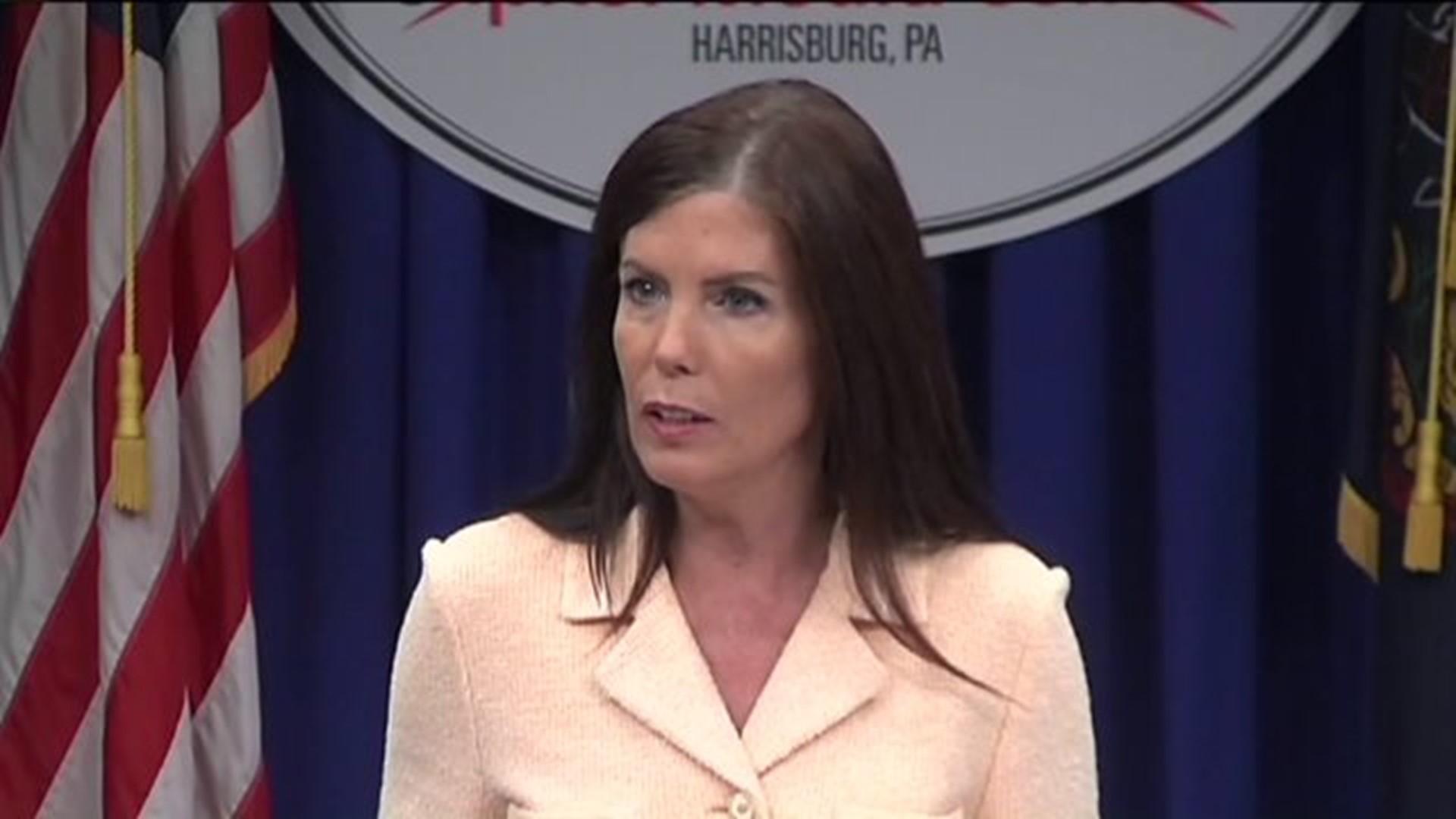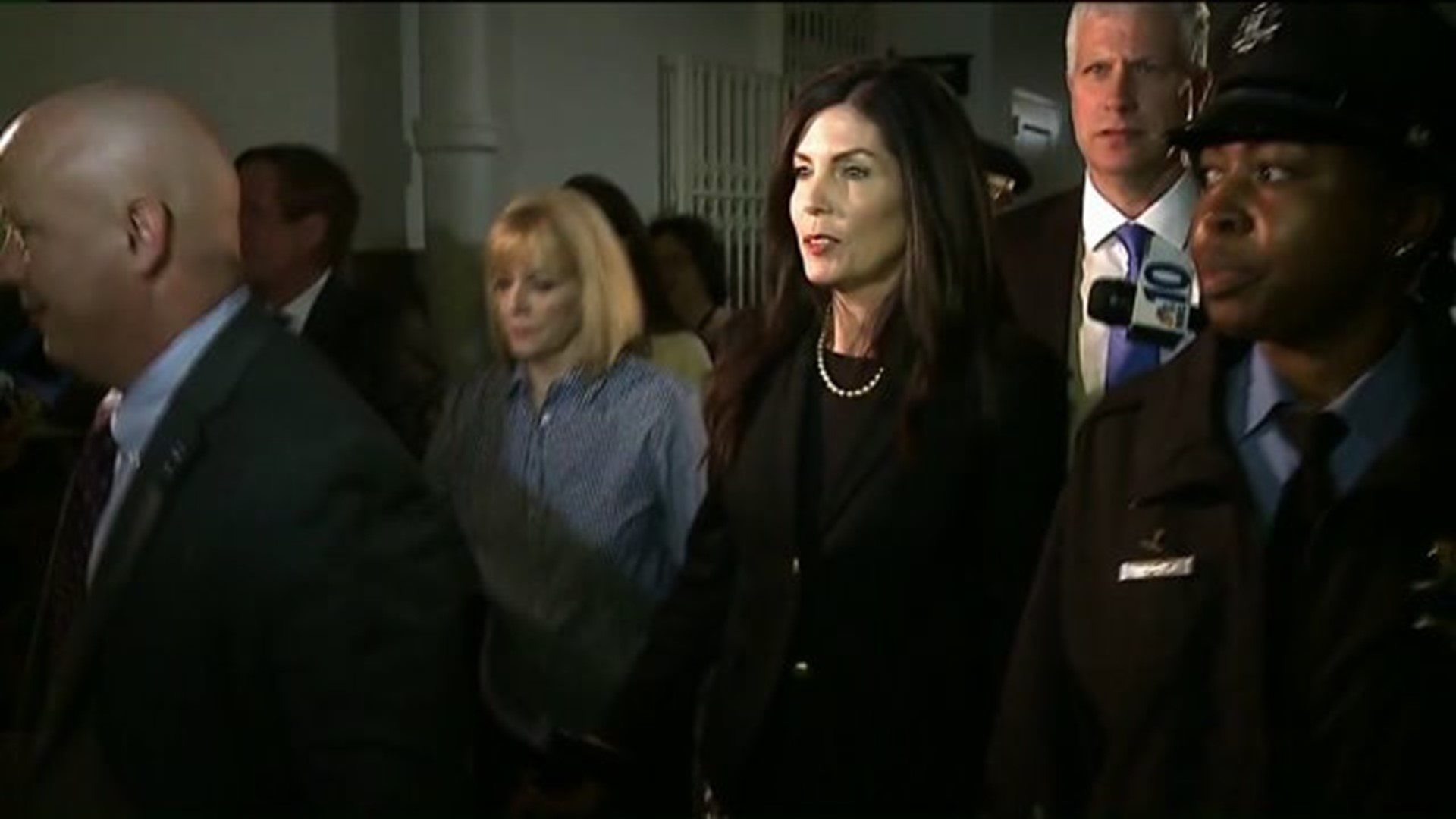HARRISBURG -- The Pennsylvania Supreme Court has issued an order temporarily suspending the law license of Pennsylvania Attorney General Kathleen Kane.
The court says that the order is not an attempt to remove Kane from office and is limited to a temporary suspension of her license to practice law.
The court's ruling backs up the state disciplinary board's finding that by keeping her law license, Kathleen Kane is causing, "immediate and substantial public harm."
Complicating the case, the Pennsylvania constitution requires the attorney general to be a licensed lawyer, though the law does not address what happens to the attorney general after losing that license.
One of the lawyers who prepared Kane's case before the state Supreme Court is Jim Mundy who once headed the disciplinary board. He says there is a silver lining in the court's ruling.
"While we are disappointed in the findings of the Supreme Court, we do take comfort in the fact that the Supreme Court's order specifies that she stays in office and that she's not removed," said Mundy.
Kane issued this statement Monday afternoon:
"I am disappointed by the action taken by the Supreme Court today. It is important to note that the order specifically states that “this order should not be construed as removing Respondent from elected office.” I continue to maintain my innocence and plan to keep fighting to clear my name while serving out the rest of my term in office. I am confident the hundreds of employees of the Office of Attorney General will continue protecting the people of Pennsylvania with the same high level of energy, dedication and professionalism they have always displayed."
Some are now questioning whether Kane should remain in office.
Newswatch 16 Investigates obtained a copy of Kane's response to the Pennsylvania Supreme Court's Office of Disciplinary Counsel. This came a week after the office recommended that Kane be stripped of her license to practice law.
Kane says she is innocent of the crimes that she is charged with, and that since she has not been convicted, she cannot be disbarred for "egregious misconduct."
She claims there is "no immediate or substantial harm," that would result from her keeping her license.
She also says her constitutional rights would be violated by losing the right to practice law without due process.
The charges stem from Kane allegedly leaking confidential grand jury information and then lying about it.
The charges come eight months after a special grand jury recommended Kane be prosecuted for four criminal charges including perjury and obstruction of law.
Last month, Montgomery County District Attorney Risa Ferman took the grand jury's recommendation and announced she will prosecute the attorney general on all four of those charges, adding a charge of conspiracy, as Ferman claimed the attorney general used others to carry out what she called an illegal scheme.
"She's never been found guilty of anything. She's never had the ability to present evidence. She's never been able to confront a witness against her. She's never had a hearing in front of an impartial jury, and there's never been a finding against her," said Mundy.
The state constitution requires the attorney general be a licensed attorney, her status as attorney general could be questioned.
Former state Attorney General Walter Cohen said this is the first time a sitting attorney general cannot practice law.
"Yes, we have an unusual situation. It never happened before, hopefully never happens again," he said.
Cohen was the top deputy attorney general in 1995. He took over as attorney general after Ernie Preate, also a Scranton native like Kane, resigned after pleading guilty to mail fraud.
Cohen says that's the only other situation to come close to what's happening with Kane.
"The closest precedent would be Ernie Preate and Ernie resigned from the bar the moment he was indicted."
On Thursday, agents from the Montgomery County prosecutor's office raided Kane's Harrisburg office. There is no word on what the agents were looking for.


